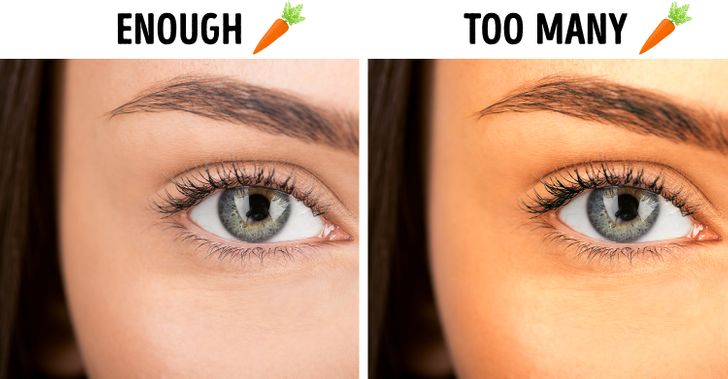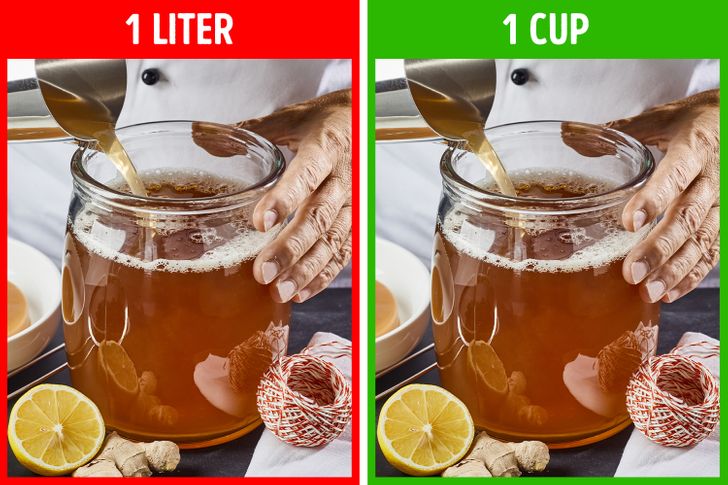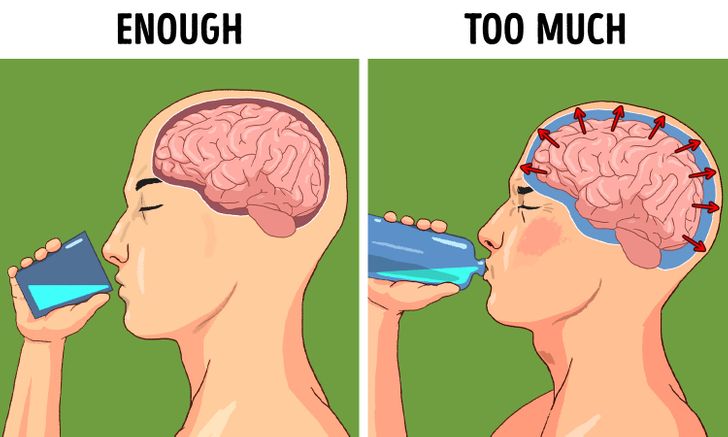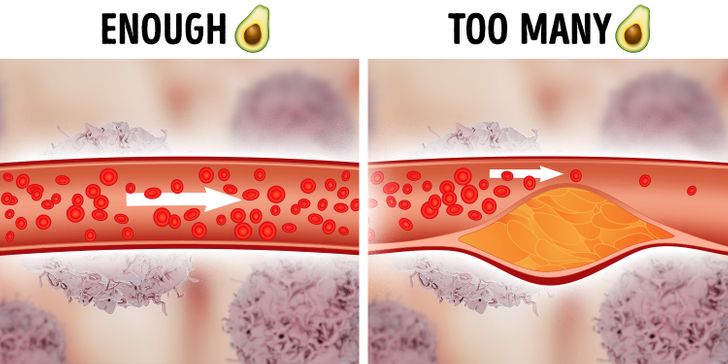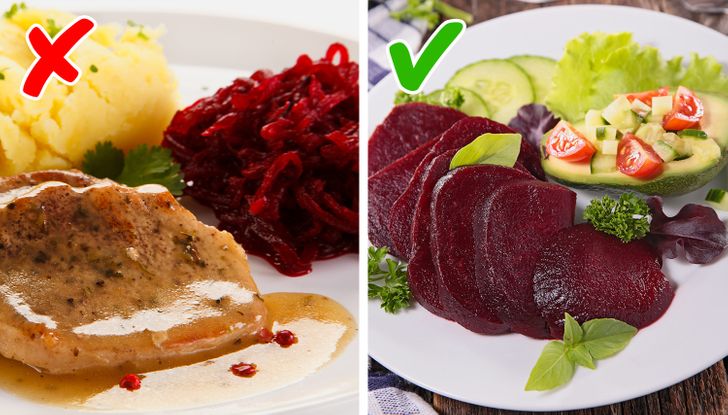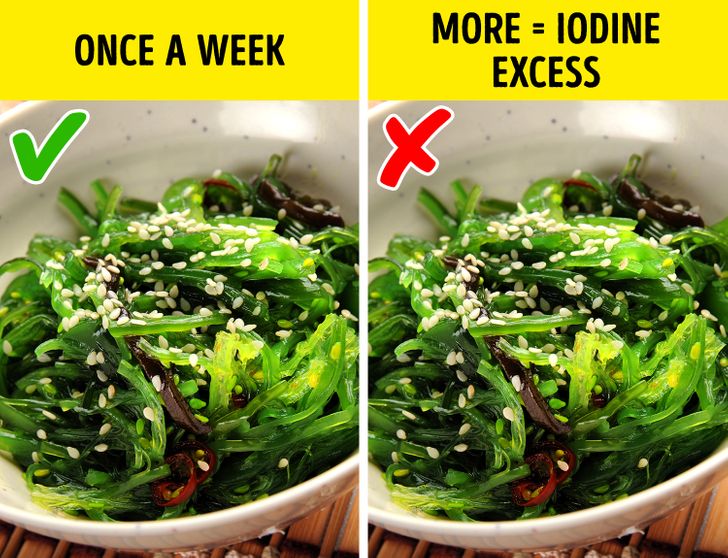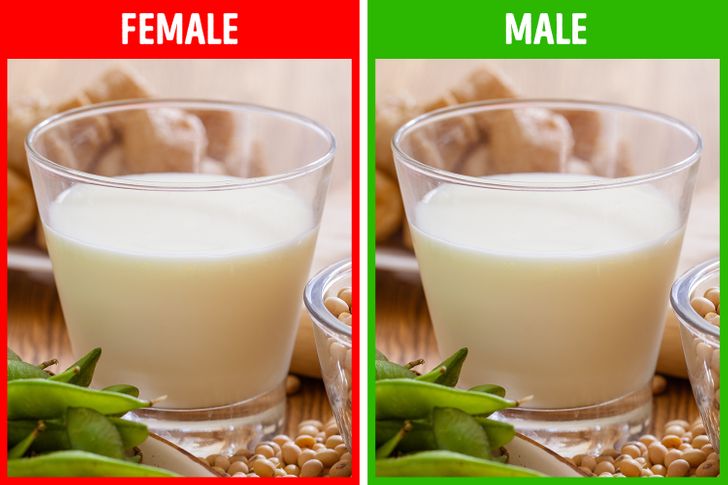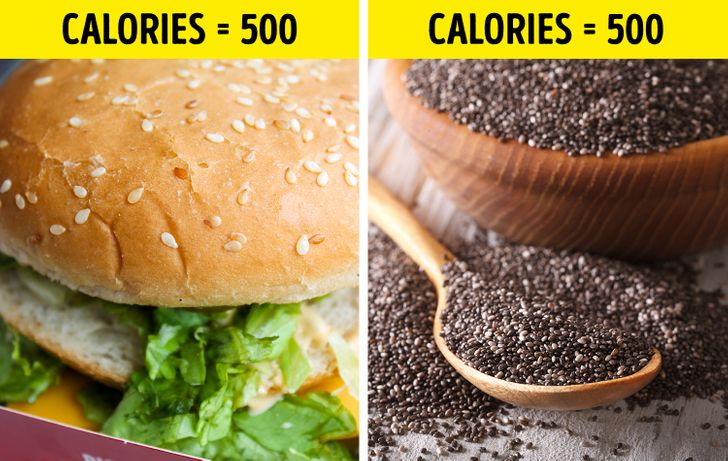Website content extracted from: 8 Healthy Foods We Shouldn’t Overdose On (brightside.me)
Ever since the Mediterranean diet was proven to be a healthier one, people realized just how much food relates to health. Unfortunately, much of the buzz made around this new dietary habit focused on increasing the consumption of one single product, yet not even the so-called superfoods can offer all the nutrients and health benefits of a balanced diet.
Today at Bright Side, we’ve looked into what can happen when you overdose on healthy foods.
1. Carrots
Carrots are packed with beta-carotene, which your body turns into vitamin A. Such a thing as excess vitamin A does not exist because your body converts beta-carotene into vitamin A as needed. Unfortunately, excess beta-carotene in your body can cause carotenemia, a disease that turns your skin yellowish. It gradually disappears as the carotene is processed and causes no harm.
2. Kombucha
The Chinese drink that conquered the millennial foodie world comes with digestive benefits and is said to increase gut bacteria. However, it also contains a compound called FODMAP, a byproduct of yeast fermentation which if consumed in great quantities, can cause bloating and digestive distress.
3. Water
Too much water can create an electrolyte imbalance by sending sodium levels down to the floor when your kidneys can’t process it anymore. Another consequence, in extreme cases, is water accumulation in the brain which makes it swell and increases pressure since human skulls can’t stretch. Although very rare, both cases have been seen in athletes feeling a compulsive need to rehydrate after a long training session or in people with kidney problems.
4. Avocado
Avocados contain fiber and a great deal of vitamins. It can also help you lower bad cholesterol (LDL) and maintain your cells due to their high content of monosaturated fats. But fat still remains fat. A single avocado contains 240 calories which is about 10%-20% of a person’s ideal calory intake and ingesting too many calories can lead to artery-clogging problems. One should stick to about half or 1 avocado a day if eaten raw (so not avocado chips, for example).
5. Beetroot
Beetroot is a great source of vitamins and minerals. It also contains many nitric oxides that your body converts into nitrates which can help lower your blood pressure. Those are then turned into nitrosamines which are also found in meat, meaning it could increase one’s chances of developing diseases. Because of this, it might be best to avoid combining a high intake of beetroot and red meat.
6. Seaweed
Seaweed is a rare example of a non-animal product rich in vitamin B12, which makes it a great substitute for meat in vegan and vegetarian diets. It has also been promoted as a superfood that could help you lose weight due to its iodine and fiber-rich content. But a high iodine intake could lead to thyroid problems and even weight gain. Seaweed might also contain high amounts of heavy metals depending on where it grew.
7. Soy and its derivatives
Soy foods are rich in nutrients including vitamin B, fiber, potassium, magnesium, and high-quality protein. It’s considered a complete protein because it contains all 9 essential amino acids that the body cannot make. But if you’ve changed your diet recently due to thyroid problems, beware: soy might interfere with hormone medication used to treat hypothyroidism in female patients. Although studies are not conclusive, it’s worth monitoring carefully.
8. Chia seeds
Although chia seeds have been sold as a superfood because of their high omega-3 content, no evidence has been found so far of their health benefits, specifically regarding cardiovascular disease. The omega 3 contained in chia seeds is more difficult to absorb than the kind provided by salmon, so despite containing more of it, you would need to eat about 100 grams of chia seeds to absorb just as much as you would with fish. Here’s the catch: 100 grams of chia seeds contain about 500 calories, which equals about the same as a fast-food hamburger.
Do you think it’s good for your health to consume any foods in great quantities? Why do you think people overconsume these “healthy” foods? Let us know in the comments!
